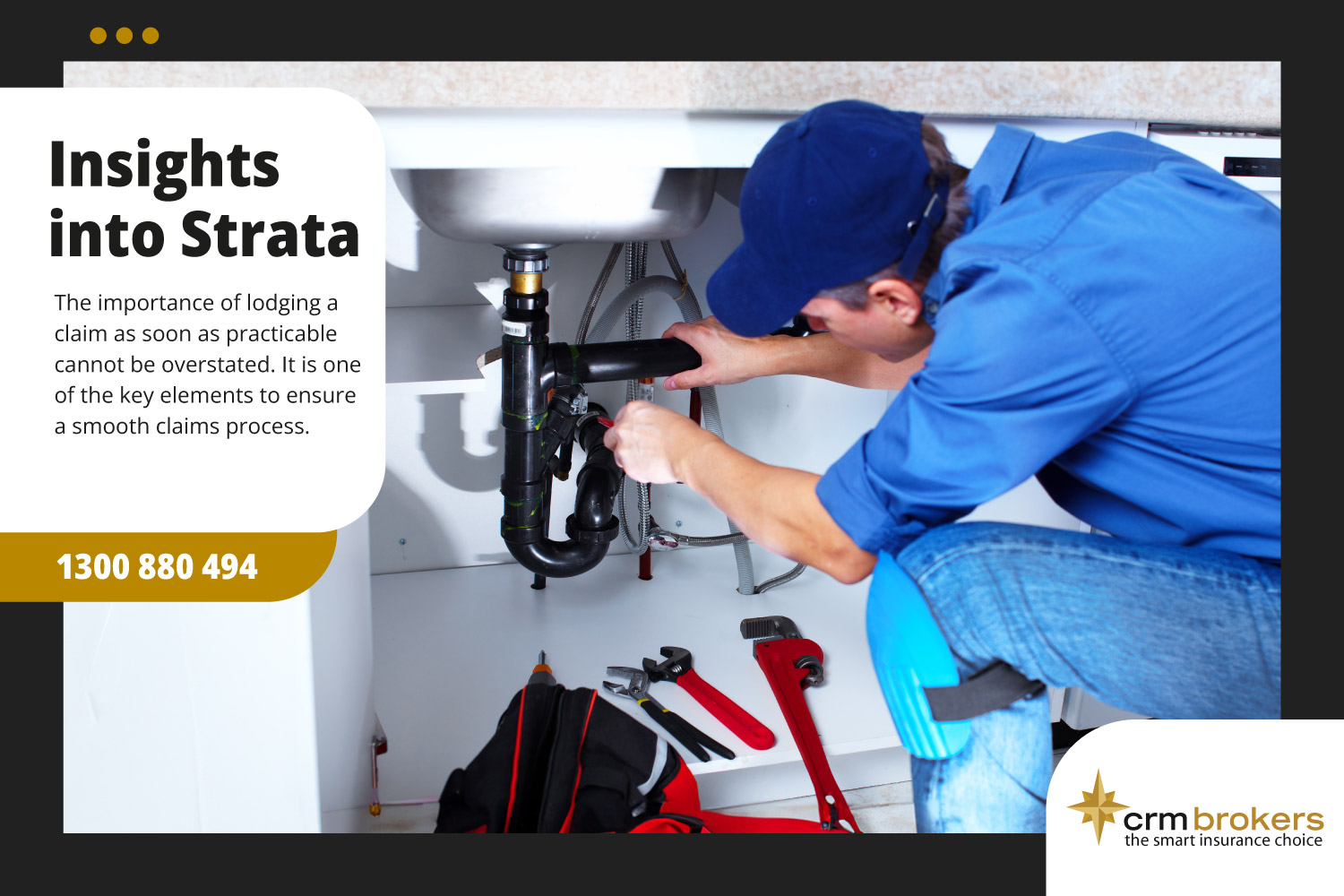
31 Oct Strata Insurance Insights: The Importance of Timely Claim Notification
We would like to emphasize the significance of timely claim notification for strata insurance policies. Whilst we understand that there may be valid reasons for a delay, it is essential that a policyholder notify the insurer as soon as reasonably possible.
In most cases the timely lodgement of a claim will form part of the claims conditions in a strata insurance policy wording. Most policy wordings state that if your notification is delayed, resulting in higher costs for the insurer or if the insurer’s investigation opportunities are compromised, the insurer may reduce the payout, potentially even to zero.
If you are unsure about what your policy considers a ‘timely lodgement,’ now is a good time to familiarise yourself with your policy wording. The wording may specify a particular time frame, such as 30 days, or it may be broader, stating ‘reasonably practicable.
Lodging a claim after completing repairs may jeopardise the insurer’s opportunity to accurately determine whether the claim is accepted/denied under the policy wording. An example of this may be the late lodgement of a burst flexi hose claim. If the claim isn’t lodged for over thirty days, the insurer does not have the opportunity to investigate the cause and the damage.
In such a case, the insurer relies solely on the policyholder’s account of events and the evidence provided, such as photos and the actual damaged flexi hose. If these are insufficient or do not exist, the insurer may have grounds to partially decline the claim.
In situations where you need temporary emergency protection or make safe by reducing the buildings exposure to further risks, we strongly recommend and advise you to get in touch with us as soon as such event occurs. This allows us to seek prior written consent from the insurer, allowing necessary costs to be incurred and accepted beyond the sub-limit that may apply.
When a strata insurance claim is lodged promptly, it enables the insurer to begin the claims process as well as investigate the claim if necessary. This, in turn, can lead to reduced repair costs and minimal disruption to the owners. If, for any reason, you find it challenging to provide all the necessary information at once, please consider supplying us with as much detail as possible relating to the claim, including a description of the events that cause the loss, the resultant damage, relevant photos of the damage and any invoices you may have already.
Key Takeaways
- Lodge a claim as soon as practicable – don’t let paperwork sit idle.
- Maintain good record-keeping practices, including photos of the damage and supporting evidence.
- Delays in lodging a claim could result in a reduced settlement.
- Review your policy wording.
Should you require any further clarification or would like to discuss any policy questions please feel free to contact our team.
Stay Informed – Connect with us on LinkedIn
Important Notice
Disclaimer: Terms, conditions, limits, deductibles and exclusions apply to the products referred to above. Any advice in this article is general advice only and has been prepared without taking into account your objectives, financial situation or needs. Before making a decision to acquire any product(s) or to continue to hold any product, we recommend that you consider whether it is appropriate for your circumstances and read the relevant Product Disclosure Statement (‘PDS’), Financial Services Guide (‘FSG’) and the Target Market Determination (‘TMD’) which can be obtained by contacting CRM Brokers.
Information is current as at the date the article is written as specified within it but is subject to change. CRM Brokers make no representation as to the accuracy or completeness of the information. Various third parties have contributed to the production of this content. All information is subject to copyright and may not be reproduced without the prior written consent of CRM Brokers.
Defect Remediation & Maintenance in Strata
Strata committees often ask why the presence of outstanding defects or maintenan...
27 February, 2025The Rising Risk of Tobacco Retailer Tenants for Strata and Property Owners
Earlier this year we wrote an article about high-risk tenants for strata and pro...
03 December, 2024Holiday Trading and After-Hours Information
CRM Brokers wishes you and your family a very Merry Christmas and we look forwar...
04 November, 2024The Importance of Police Reference Numbers for Claims
At CRM Brokers, we are committed to making our client’s claims experience ...
30 October, 2024





